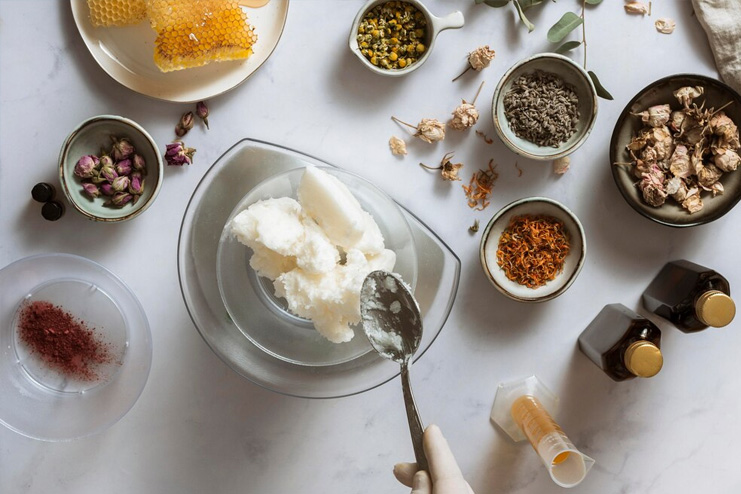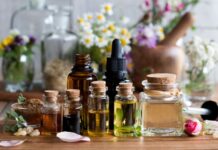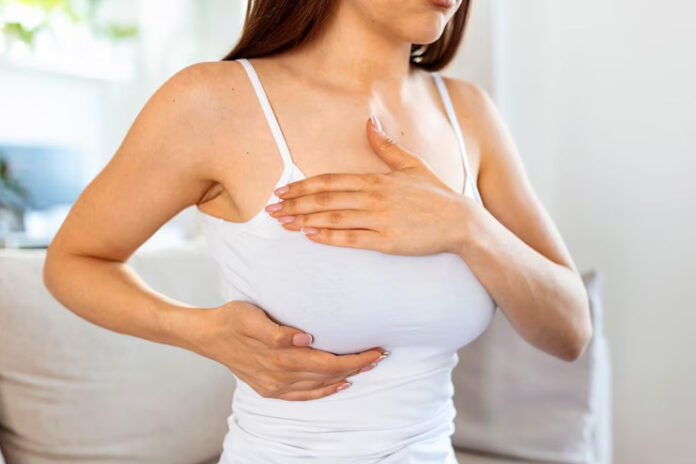Affiliate Disclaimer
Some links in this article are affiliate links. We may earn a small commission if you make a purchase through these links, at no extra cost to you. We only recommend products we find useful to our readersDespite the fact that itchy breasts are a common problem that can affect people of any age, medical professionals frequently ignore them. Itching breasts can be caused by skin conditions, allergic reactions, hormonal changes, or an underlying health concern such as breast cancer or mastitis. Start treatment for itchy breasts as soon as possible to prevent complications, alleviate discomfort, and to improve overall skin health. Throughout this discussion, we are committed to delivering in-depth insights into factors that contribute to itchy breasts, and provide practical solutions to manage and treat this condition.
Understanding Itchy Breasts
Breasts can become itchy for a variety of non-medical reasons such as dry skin, irritation to laundry detergent, and poor hygiene.
Some medical reasons that may cause itching breasts include psoriasis, eczema, allergic reactions, and fungal infections. Hormonal fluctuations caused by menopause, pregnancy, and menstruation may lead to some people experiencing itching breasts. Medications or an underlying disorder such as Paget’s disease or breast cancer, may also cause itching.
A number of symptoms are frequently associated with itchy breasts, including redness, rash, swelling, dryness, and occasionally pain or a burning sensation. It is important to seek medical help to treat persistent itching that does not disappear with primary skincare or over-the-counter products. Should you experience other unsettling symptoms in addition to the itching, such as lumps, discharge, or changes in the appearance of your breasts, you should seek medical attention. Early diagnosis and treatment can prevent potential complications.
Home Remedies for Itchy Breasts

Oatmeal Paste: The soothing properties of oatmeal makes it an effective treatment for itchy breasts. To make an oatmeal paste:
- Blend one cup of plain oats into a fine powder
- Combine the oatmeal powder with a few tablespoons of warm water until it forms a thick paste
- Apply the paste directly to the itchy area and gently massage it into the skin
- Allow to sit for fifteen to twenty minutes, then wash it off with lukewarm water
Repeat this process daily until the itching stops.
Applying this paste to the skin can help to relieve itching, reduce inflammation, and moisturize the skin.
Cold Compress: Applying a cold compress to the affected area will gently numb the area and reduce inflammation, and provide relief from itchy breasts. The cold helps constrict the blood vessels, and reduces swelling and itching.
For quick relief, apply a cold compress multiple times a day. Wrap a few cubes of ice or a cold gel pack in a clean cloth, and apply as a cold compress for ten to fifteen minutes. Do not apply ice directly to the skin, as it may cause frostbite.
Moisturizing: Maintaining high skin moisture levels can help prevent and alleviate the symptoms associated with itchy breasts. Choose a moisturizer that is fragrance-free and of hypoallergenic to prevent further irritation. Look for products containing natural ingredients such as shea butter, aloe vera, and glycerin which are known for their calming and hydrating effects on the skin.
The use of good quality moisturizing products on a consistent basis helps maintain the skin barrier, which in turn prevents dryness and reduces the likelihood of itching.
Moisturize your entire body soon after taking a bath, and while the skin is still damp. This helps prevent moisture loss by locking in the post-shower hydration into the skin. Pay special attention to the areas that are itching.
Wear loose-fitting, breathable clothing made with natural fibres to reduce friction and irritation against the skin. Avoid hot showers and baths, which can dehydrate the skin, and avoid harsh soaps and detergents, which can cause dryness and itching.
Medical Treatments
Antihistamines: Histamine is a substance released in the body during an allergic reaction, which can cause symptoms such as itching, sneezing, and swelling. Antihistamines block the action of histamine, and therefore reduce the effects of these allergic reactions.
For itchy breasts that are a result of allergic reactions or inflammatory skin conditions such as eczema, antihistamines can provide significant relief. Oral and topical formulations are available for purchase without a prescription (OTC). It is essential to carefully adhere to the dosage instructions to avoid adverse effects such as drowsiness or dry mouth.
Over-the-counter antihistamines may be effective in cases of mild itching; however, prescription-strength options may be necessary in cases with severe or persistent itching. Speak with a healthcare provider to receive individualized recommendations based on your symptoms and medical history.
Topical Steroids: Topical steroids, potent anti-inflammatory medications, are employed to alleviate swelling, redness, and itching associated with diverse skin conditions like dermatitis and eczema. They work by reducing inflammation and suppressing the immune response.
It is imperative to apply topical steroids as directed. Gently rub in a thin layer and massage until fully absorbed into the skin.
Some side effects of prolonged topical steroid use include stretch marks and skin thinning. Healthcare professionals advise using them infrequently or in conjunction with moisturizers to reduce risks. Follow up with a healthcare professional regularly to assess progress and make necessary treatment adjustments.
Prescription Treatments: In cases where home remedies and over-the-counter medications prove ineffective, seek medical advice from a specialist. Dermatologists can prescribe stronger topical creams or ointments containing corticosteroids, calcineurin inhibitors, or other medications tailored to treat conditions that cause breast itchiness and irritation. For severe or persistent cases, doctors may recommend oral medications like immunosuppressants or antibiotics.
While these treatments are designed to manage symptoms effectively, their primary objective is to target the underlying cause of itching. It is important to strictly adhere to the prescribed guidelines and follow-up with your doctor to monitor progress and manage any potential side effects.
Preventive Measures

Wear clothing made of breathable natural materials, such as cotton, to minimize friction and irritation. Choose loose, comfortable clothing instead of clothing that is too tight. Maintain proper posture to avoid sweat and moisture accumulation, which can make itching worse. To reduce skin irritation, wash bras and clothes regularly using hypoallergenic detergents.
Drink plenty of water to keep your skin supple and hydrated. Incorporate foods high in omega-3 fatty acids, such as walnuts, salmon, and flaxseeds, to help hydrate and soothe the skin. Consume fruits and vegetables high in antioxidants and vitamins A, C, and E, which are known to support healthy skin. Limit intake of processed foods and sugar, which can increase inflammation and aggravate itching.
Showering daily with gentle, fragrance-free cleansers will maintain good skin hygiene and remove sweat, debris, and bacteria that can irritate the skin. After a bath:
- Gently pat your skin dry with a soft towel, careful not to rub
- Regularly moisturize the skin to avoid dryness and irritation
- Keep your nails neat and manicured to prevent scratching, which can exacerbate skin irritation and cause infections
By incorporating these habits into your daily routine, you can lessen the chance of developing itchy breasts and preserve the integrity of your skin.
When to See a Doctor

When unusual skin changes such as redness, swelling, or warmth accompany persistent itching, they may indicate an underlying medical condition that requires evaluation. It is best to consult a doctor immediately if itching is severe, interferes with everyday activities, or does not improve with over-the-counter medications or home remedies. Breast tissue lumps, changes in breast size or shape, and nipple discharge are additional symptoms that require immediate medical attention.
Seeking advice from a dermatologist is essential for persistent or recurrent cases of itchy breasts. Dermatologists specialize in skin conditions, including those affecting the breasts. They can perform a comprehensive examination, offer professional advice, and suggest suitable treatments depending on the underlying cause of the itching.
A dermatologist can also recommend tests to diagnose underlying condition promptly. Diagnostic tests such as a skin biopsy to look at the tissue under a microscope, allergy testing to find triggers, or imaging tests like mammography or ultrasound can help assess breast health. Blood tests can measure hormone levels or look for signs of infection. With the aid of these tests, dermatologists and other medical professionals can precisely determine the cause of itchy breasts and modify treatment regimens accordingly.
Conclusion
This article has covered various aspects of itchy breasts, including causes, home remedies, over-the-counter medications, medical treatments, preventative measures, and when to consult a specialist. We have learned how to keep skin healthy with good hygiene and lifestyle choices, how to use home remedies like oatmeal paste and cold compresses to treat persistent symptoms, and when to seek medical attention like topical steroids and antihistamines. Seeing a healthcare provider proactively if symptoms worsen or persist is essential to getting relief and avoiding a recurrence of itching breasts.
-
Aug 2017Written by Prajakt
-
July 2024Edited by Ankita
In this Article



















